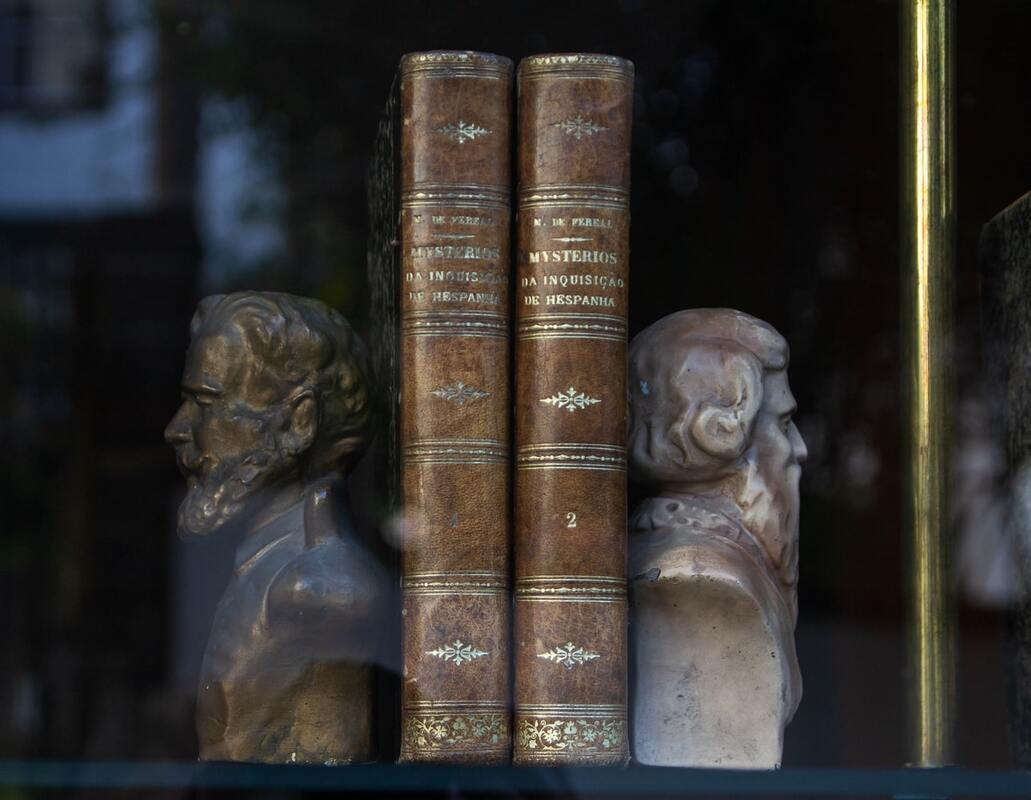Writing a Book is a Radical Act of Self-Preservation In the face of an uncertain future, keep on writing. Since the pandemic hit, I’ve noticed myself reaching more often than not for historical books, movies, and TV shows -- most likely a subconscious effort to exchange our unstable present for the solid, dependable past. The show I’ve become most obsessed with is The Last Kingdom, a Netflix show which follows the brutal and bloody clashes between the Saxons and the invading Danish Vikings in ninth century England. Now, this isn’t my usual type of show, but there’s a throughline that keeps me coming back. The characters speak often of how they’ll be remembered, of the legacy they’ll leave behind when they leave this life. And keep in mind, there are at least 20 deaths per episode, so death is never far behind. They don’t have long to make an impact, so they often speak of doing something so noble, their people will sing of them many years later. That is, until the king sees the power of reading and writing books. In the past, books were sacred objects, notably because they were difficult to make and barely anyone could read. Still, books were vessels for tradition, history, and ideas; they gave insight into the way things once were, as well as shaped the way things would be in the future. People looked to books for guidance on their habits, fears, faiths -- their entire worldviews. By extension, the authors of these books were extremely powerful; as only a select group of people were able to read and write, the creators of these books became the arbiters and disseminators of truth and culture. The king, much to the confusion of everyone around him, prioritizes recording his life story even while the Danes are knocking down his door. He knows that future generations will likely be able to read, and if his books can only survive the ages, they’ll know his name and what he accomplished. He makes a massive sacrifice for the future, even when his time could be spent dealing with matters at hand in his unstable present. Of course, things are different today. Literacy is the default, books are much more widely accessible, and our tools for producing written work are far more advanced and diverse than they used to be. And most importantly, we no longer rely on just a few people (or kinds of people) to tell stories. Today, a good story can come from anywhere and can reach almost anyone. It’s a testament to humanity’s drive to create that so many barriers to writing and sharing stories have been broken down over time, but it’s become so easy to read and write and consume that I think we’ve forgotten the power that stories really have. We take them for granted today because the process has been simplified and made accessible; but the innate power of books, the immutable quality that made them so significant in the past, isn’t any less than it used to be. And if we take a moment to reflect on what purpose stories serve for their authors, maybe we can better understand the value they hold for everyone else. For many of us, creating something is a source of comfort. Whether it’s bread, or art, or change, creating gives us control over a process and end product, and agency in a world where, at times, it feels like all the things that matter are just beyond our influence.
Writing is a way to establish and maintain some stability in a world that changes by the second. Each new day is uncertain and, at times, the thought of living in a future world that follows from the turmoil we’re experiencing today can be...alarming to say the least. But finding solace in a reality of your own making can be a healthy and rewarding way to manage the stress of your day-to-day life. There’s also comfort to be found in the longevity of stories. The Last Kingdom remarks on this often -- the idea that written work will last for generations beyond its original creator. Your book is your legacy, and it will outlast you and go on to touch the hearts and minds of everyone who comes across it in the future, long after you’ve passed away. In a sense, creating a book is the most radical act of self-preservation we’ve got. Books are written to be read by others, but understanding what your work means to you -- how it nourishes you creatively, emotionally, professionally -- is essential for keeping the magic alive as you write. Your story is something you have total control over, from start to finish. It’s malleable only to you, and it’s complete only when you say so. You can dedicate the space you’ve carved out to whatever you like. You can talk about racial injustice, send a character to outer space, examine your own childhood, contemplate the future; whatever universe you decide to create, every line and every turn is at your discretion. The possibilities are endless, but they’re all within your grasp. Comments are closed.
|
Categories |


